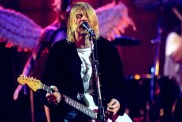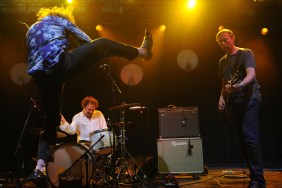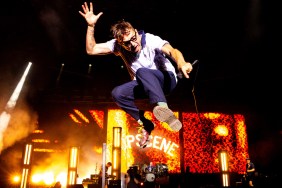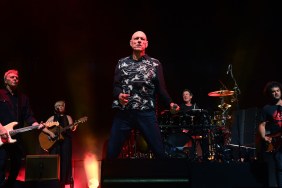Documentaries have been around since almost the dawn of cinema itself, but as an avid cinemagoer, one of the only documentaries I had seen when I was growing up was a limited release of Ron Mann’s Comic Book Confidential way back in 1988. I went to see that because I was a fan of comics and wanted to know more about their creators and the medium they worked in. This ‘factual’ behind-the-scenes big screen outing let me indulge my hobby and passion and also find out more about the inner workings of the comic book industry.
My friends and I were so pleased that someone had taken the time and effort to make a film about a subject we were so passionate about. We loved watching documentaries on TV by David Attenborough and the BBC based on the animal kingdom and nature as well as the endless plethora of films about relevant subjects of the era such as the threat of World War III, Aids and the famine in Africa, to name a few. But there was never a general release of other ‘factual’ films in my local area on the big screen. Maybe it’s because they weren’t big box office. There were plenty of films to see but hardly anywhere to watch them unless you were lucky to catch a viewing on said TV or rent a copy from your local video store from the very obscure ‘special interest’ section.
Since my youth, documentary filmmaking has come a long way and some may say that Michael Moore’s Bowling for Columbine and Fahrenheit 9/11 pushed the medium of documentary (at least in terms of the cinema going public) into the mainstream. Documentaries are frequently aired in Australia on ABC, SBS and now screened at local cinemas on a regular basis. With the advent of the upcoming Antenna Documentary Festival, the general public, and I, are now even more spoiled for choice, with a selection of quality programming.
Music Feeds talks to Festival & Artistic Director David Rokach about how the festival began and this year’s highlights.
MF: Sydney has a plethora of film festivals, some of which have a documentary film element. Antenna is now in its 2nd year. Are you surprised that no one had set up a specific festival covering documentary until now?
David Rokach: I came to Sydney in 2008 after working with a very big and successful documentary festival in my hometown, Tel Aviv, so at the beginning, yes, I was very surprised. However, getting to know the Australian industry better, there were a few attempts to create a documentary festival in Australia. I am not sure why it didn’t work out for them. I can just say that in order to create a documentary festival from scratch, you need lots of patience, and other crazy people in your team that believe in it. Luckily I had both.
MF: What are the highlights of this year’s festival?
DR: Highlights of this year include:
Call Me Kuchu is one of the strongest films in this year’s festival. It tells the story of the life and death of Uganda’s first openly gay man and activist, David Kato. The film has everything that makes a good documentary. It is smart, sensitive, well crafted and moving. It is an important and relevant story that shows us that while we are fighting for gay marriages, in other places the gay community is fighting for their lives.
Another great film is Putin’s Kiss. The film follows the life of Masha Drokova, a 19-year old spokesperson in the government-friendly and strongly nationalistic Russian youth organization, Nashi. Masha was seduced by the high energy of the movement and has got a lot of benefits in return for her loyalty. But then she starts seeing a group of critical journalists and the doubts start to creep in. It is interesting to follow Masha’s story as through a personal and unexpected drama; the film paints a grim picture of the Russian political climate.
Another film I would like to mention is a Swedish film called Women with Cows. The film follows two elderly sisters, Britt and Ingar, and documents their struggle to maintain their family dairy farm. Britt and Ingar are two immensely charming and wonderfully human characters that are totally unforgettable. In my opinion, the Director, Peter Gerdehag, has created one of the best cinematic documentaries I’ve seen this year.
MF: What’s your favourite documentary that you have ever seen?
DR: I have two. One is the classic film by Frederick Wiseman called, Titicut Follies. The other one is the 80’s documentary, Paris is Burning, directed by Jennie Livingston.
MF: Are there documentaries that draw a line between fiction and fact?
DR: Yes, generally there are many films that draw this line. One example is the legendary filmmaker, Anges Vada, which Antenna is paying tribute to this year. Vada is well known for pushing boundaries in her work. Most of Vada’s films are a hybrid between fiction and documentary. One of the three films Antenna is screening this year is generally considered a fiction, called Cleo from 5 to 7. We chose to show the documentary to highlight the documentary quality of her fiction work.
MF: Do you think the medium is more powerful than that of a fiction film?
DR: No. I feel that fiction and documentary are both powerful mediums that can allow great work to be made. However, I do think that complexities are more powerfully conveyed trough documentaries.
MF: Has anyone submitted a fake documentary? How do you know what stories are real or not?
DR: When I’m watching a documentary, I am not so concerned whether it is real or not. If the documentary is well-made and asks questions about reality and can present an original and interesting perspective on reality, then it gets my attention.
MF: What is your background? Are you a documentary filmmaker?
DR: I studied philosophy and cinema at Tel Aviv University and worked with many other film festivals, including the Documentary Festival in Tel Aviv. I also worked as a cultural editor for an online portal in Israel.
MF: Any plans to expand the festival to other cities next year?
DR: Yes. However, we would like to strengthen and grow in Sydney before we initiate a presence in other cities.
MF: What about screening some retrospective period documentaries if you have access to them, such as The Corbett Fitzsimmons Fight?
DR: That’s what retrospective perspective is doing and will continue to develop. Last year we screened, Sans Soleil by Chris Marker, and this year we are screening three films by Anges Vada. We will look to expand this program in the future.
Antenna Documentary Festival runs from 10th to 14th October, 2012.
For more information visit: http://www.antennafestival.org












